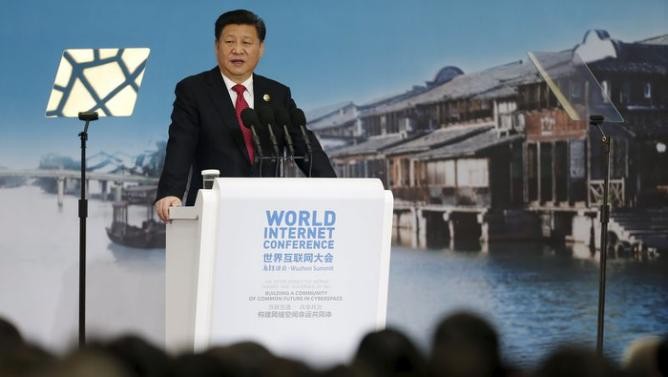Speaking at China's second annual World Internet Conference, President Xi Jinping urged countries to have broad authority to regulate the use of the Internet at home.
The invitation has hinted about a digital future in which governments can set online standards and challenge the across-border free flow of information and other online content, the Wall Street Journal cited in a report.
Additionally, Xi remarked that no nation should have a dominance in cyberspace. He said, "We should respect the right of individual countries to independently choose their own path of cyber development, model of cyber regulation, and participate in international cyberspace governance on an equal footing."
"No country should pursue cyber hegemony, interfere in other countries' internal affairs or engage in, connive at or support cyber activities that undermine other countries' national security," he added.
China is known for keeping tight Internet security within its borders. An example of this is the blocking of foreign social media outlets such as Twitter and Facebook.
Among the attendees of the conference are leaders of Central Asian countries, China's top technology-company executives and cyberspace experts across the globe.
Echoing Xi's statements, Russian Prime Minister Dmitry Medvedev said: "No country can call itself the only country that has the right to govern cyberspace, so we call on the international community to play a more important role in cyberspace governance."
Earlier this year, China and Russia led other Central Asia countries in proposing that the United Nations should adopt an Internet "code of conduct," giving each government a prohibition over technical protocols that interlink the global Internet.



























